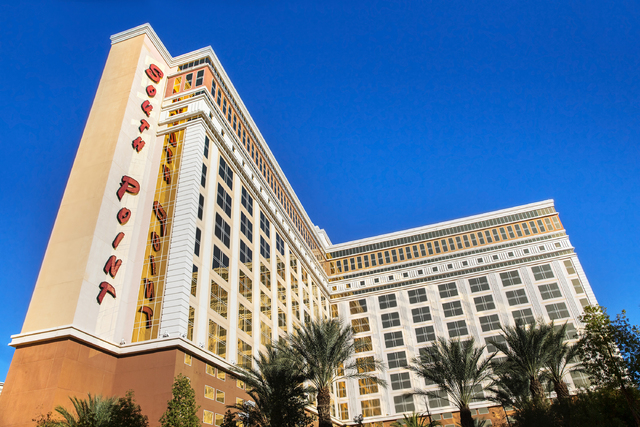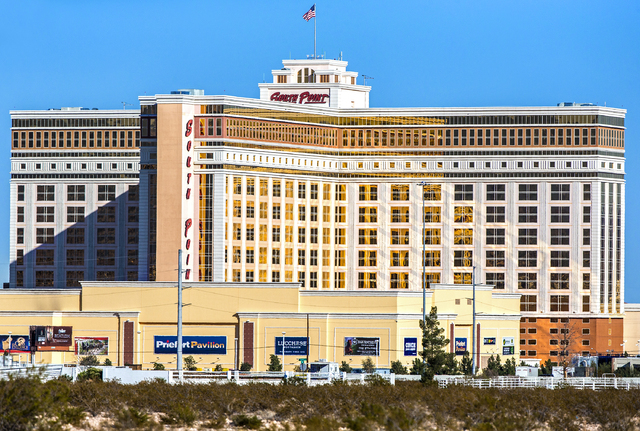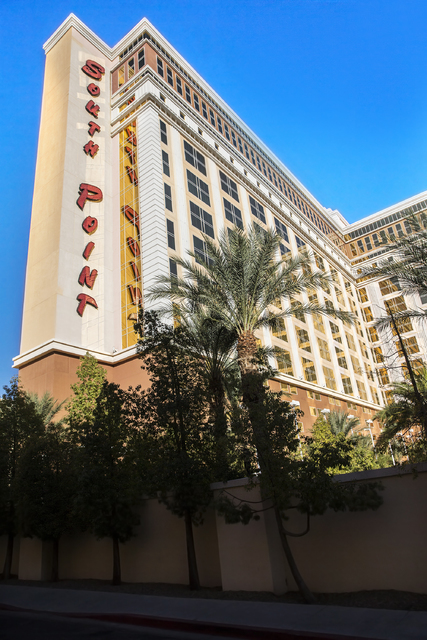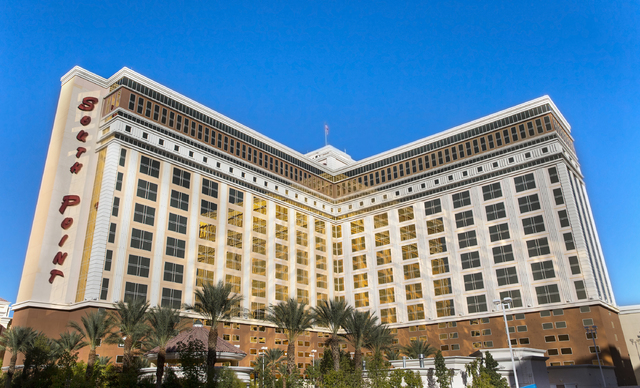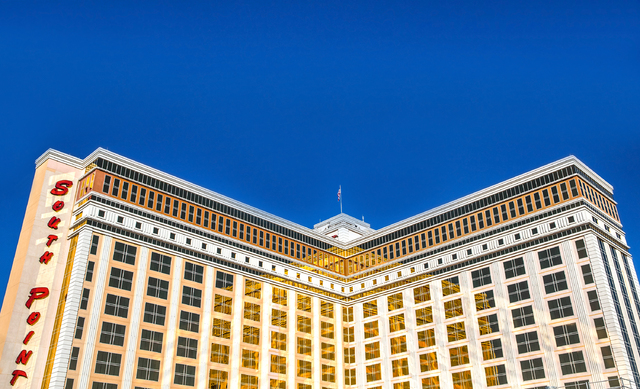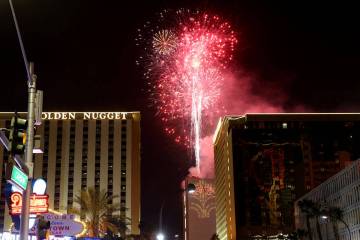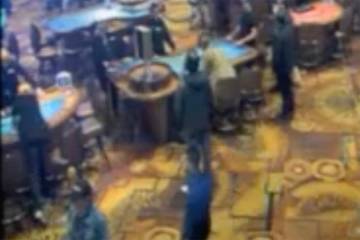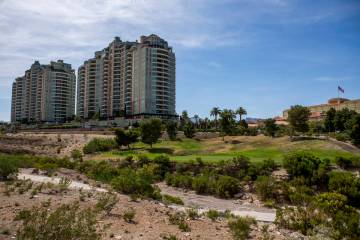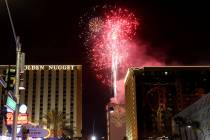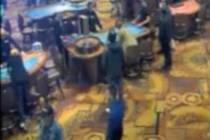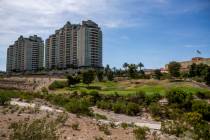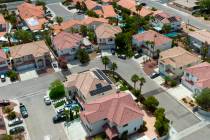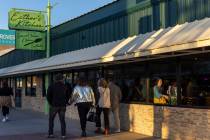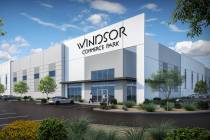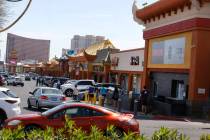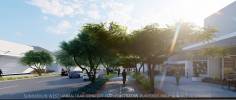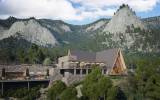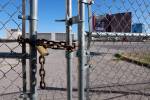South Point owner Gaughan buys additional land surrounding hotel
South Point owner Michael Gaughan has snapped up additional land around the Las Vegas hotel, including part of a site where investors sought to build a billion-dollar, boom-era project that never materialized.
Property records indicate that Gaughan bought 29.4 acres near South Point for $17.1 million since early last year. His most recent purchase closed Oct. 31 and was a steep discount from what prior owners paid during the real estate bubble a decade ago.
Altogether, Gaughan’s new parcels form an L-shape of sorts that extends south of the casino-resort along Interstate 15. Clark County commissioners in March approved plans for an outdoor, equestrian staging area for South Point – which has a 4,600-seat equestrian arena and hosts bull-riding contests, horse shows and other events – and a new 28,800-square-foot maintenance building with carpentry and auto-repair shops.
It seems unlikely that hotel guests would notice the project. But it’s yet another expansion effort by Gaughan, who in the past eight years has added, among other things, casino space, bowling lanes and a third hotel tower to South Point, located at 9777 Las Vegas Blvd. South, some six miles south of the Strip.
Efforts to speak with a South Point representative this week were unsuccessful.
The vacant 13.6-acre parcel that Gaughan acquired last month, for $7.05 million, was supposed to be part of Urban Village Las Vegas, a proposed 50-acre, $1.5 billion residential and commercial project at Las Vegas Boulevard and Pyle Avenue.
Centex Destination Properties, part of former homebuilder Centex Corp., bought the 13.6-acre chunk in fall 2005 for $35 million, county records show. A week later, the company announced “the purchase of the first phase” of Urban Village and an outline of the project.
Urban Village would be “the first project of its kind in Las Vegas” and include five neighborhoods with about 2,400 condos, including brownstones, lofts and high-rises. It also would feature shops, restaurants, a fitness center, jogging paths and parks, “providing future residents with a unique self-contained community.”
“Urban Village residents will live and play in a place that offers the best of both worlds – the convenience of urban living in the entertainment capital of the world along with the intimacy of village life,” Paul Stashick, president of Centex Destination’s West division, said in the announcement.
With lenders doling out easy money, Las Vegas’ wild real estate boom was in full swing at the time, marked by soaring home values, widespread house-flipping, nonstop construction and dozens of proposed condo towers.
Urban Village wasn’t the only mixed-use project proposed during that era. And like numerous other supersized plans from the boom years, it was never built.
In 2009, after the bubble burst and as the economy spiraled, builder Pulte Homes bought Centex Corp. for a reported $1.4 billion in stock.
Las Vegas’ real estate market and broader economy have climbed out from the depths of the recession. But without banks giving loans to practically anyone anymore, there isn’t nearly as much construction in Southern Nevada as there used to be, and it’s highly unlikely today that a developer would attempt a project as big as Urban Village.
Pulte, for one, has no interest in reviving the massive development.
Urban Village, according to Jason Demuth, director of marketing for parent PulteGroup’s Las Vegas division, is “not consistent” with its “current market strategy” in the valley.
Contact Review-Journal writer Eli Segall at (702) 383-0342. On Twitter at @eli_segall.



